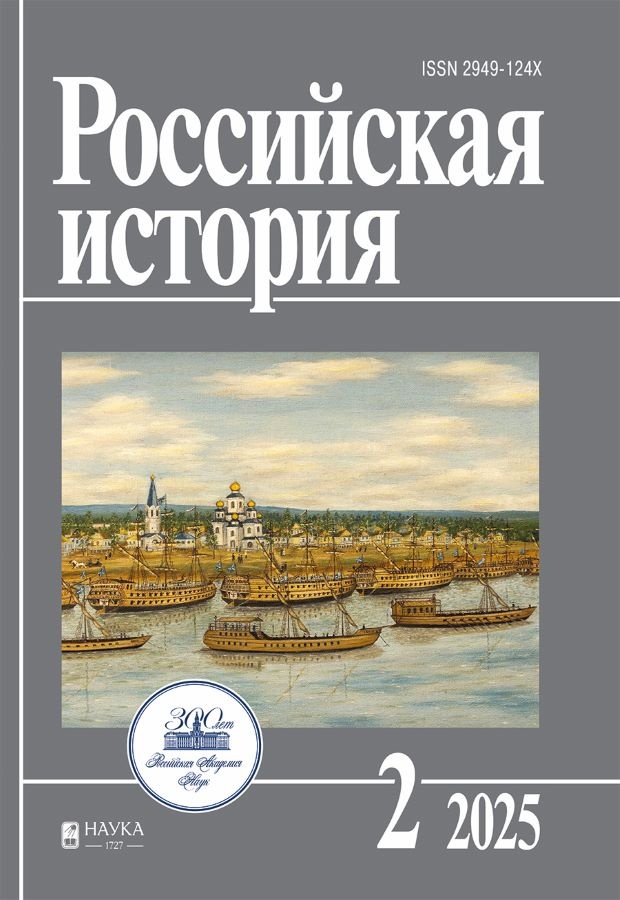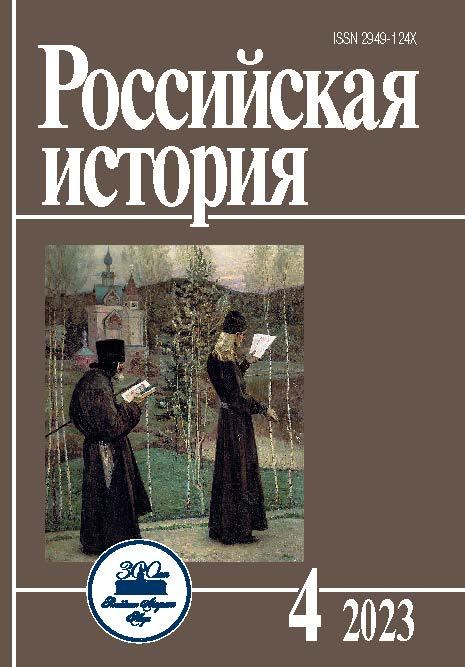Кружок ищущих христианского просвещения: состав и взаимоотношения участников
- Авторы: Паромов К.Я.1
-
Учреждения:
- Научная библиотека Московского государственного университета им. М.В. Ломоносова
- Выпуск: № 4 (2023)
- Страницы: 124-135
- Раздел: Статьи
- URL: https://archivog.com/2949-124X/article/view/663747
- DOI: https://doi.org/10.31857/S2949124X23040090
- EDN: https://elibrary.ru/HNGTIF
- ID: 663747
Цитировать
Полный текст
Аннотация
На первый взгляд, Кружок ищущих христианского просвещения (или «новоселовский кружок», по имени его председателя М.А. Новоселова), - московская организация церковных интеллектуалов, существовавшая в последнее предреволюционное десятилетие, - не требует представления. Внимание исследователей давно привлекают участники кружка М.А. Новоселов, П.А. Флоренский, С.Н. Булгаков и др. Тем не менее, история самого общества остается в тени. Характеристики членов этой организации слабо привязаны к деятельности общества (или хотя бы ко времени его существования). Это отвечает жанру комментария, вступительной статьи (о кружке чаще всего говорят при публикации наследия его участников). Без ответа остается вопрос, кому и какую динамику дал именно кружок. Так, с ним начинают ассоциироваться церковно-политические интересы Новоселова, братьев Самариных. Однако согласно уставу, политическая проблематика не подлежала обсуждению в этом обществе. Для аналитической работы в сфере политики существовал так называемый «самаринский кружок». Спецификой исследовательского интереса обусловлен и ряд неточностей в перечне участников кружка. До сих пор не ясны отношения между его лидерами Новоселовым, Самариным, Кожевниковым, Мансуровым, Булгаковым, Флоренским. Очевидно, что Самарин, Новоселов, Флоренский имели каждый собственную концепцию организации. Реконструируя эту общность, нельзя упускать из вида, что желая найти сотрудников, «ищущие христианского просвещения» в то же время находили в них и противников.
Об авторах
Кирилл Яковлевич Паромов
Научная библиотека Московского государственного университета им. М.В. ЛомоносоваМосква, Россия
Список литературы
- Бахтурина А.Ю. Окраины российской империи: государственное управление и национальная политика в годы Первой мировой войны (1914-1917 гг.). М., 2004.
- Дубинин А., иерей. Переписка В.А. Кожевникова с Ф.Д. Самариным и деятельность Кружка ищущих христианского просвещения // Богословские труды. Вып. 40. М., 2005. С. 274-288.
- Иларион (Алфеев), еп. Священная тайна Церкви: введение в историю и проблематику имяславских споров. СПб., 2007.
- Колеров М.А. "Не мир, но меч". Русская религиозно-философская печать от "Проблем идеализма" до "Вех". 1902-1909. СПб., 1996.
- Лескин Д., прот. Метафизика слова и имени в русской религиозно-философской мысли. СПб., 2008.
- Никитина И.В., Половинкин С.М. "Московский авва" // Переписка священника Павла Александровича Флоренского и Михаила Александровича Новосёлова с присоединением писем иеросхимонаха Германа Зосимовского, иеросхимонаха Антония (Булатовича), иеромонаха Пантелеимона (Успенского), В.М. Васнецова, Ф.Д. Самарина, Ф.К. Андреева, С.Н. Дурылина, И.П. Щербова (Архив священника Павла Александровича Флоренского. Вып. 2) / Под ред. игумена Андроника (Трубачёва). Томск, 1998. С. 9-38.
- Паромов К.Я. Епископ Феодор (Поздеевский) и "Кружок ищущих христианского просвещения": по переписке участников // Христианское чтение. 2012. № 3. С. 66-108.
- Паромов К.Я. Кружок ищущих христианского просвещения в духе православной Христовой Церкви // Большая российская энциклопедия. Электронный ресурс: https://bigenc.ru/c/kruzhok-ishchushchikh-khristianskogo-prosveshcheniia-v-dukhe-pravoslavnoi-khristovoi-tserkvi-909a7e (дата обращения: 16. 06. 2023 г.).
- Резниченко А.И. О смыслах имён: Булгаков, Лосев, Флоренский, Франк et dii minores. М., 2012.
- Шруба М. Литературные объединения Москвы и Петербурга 1890-1917 годов. М., 2004.
Дополнительные файлы











